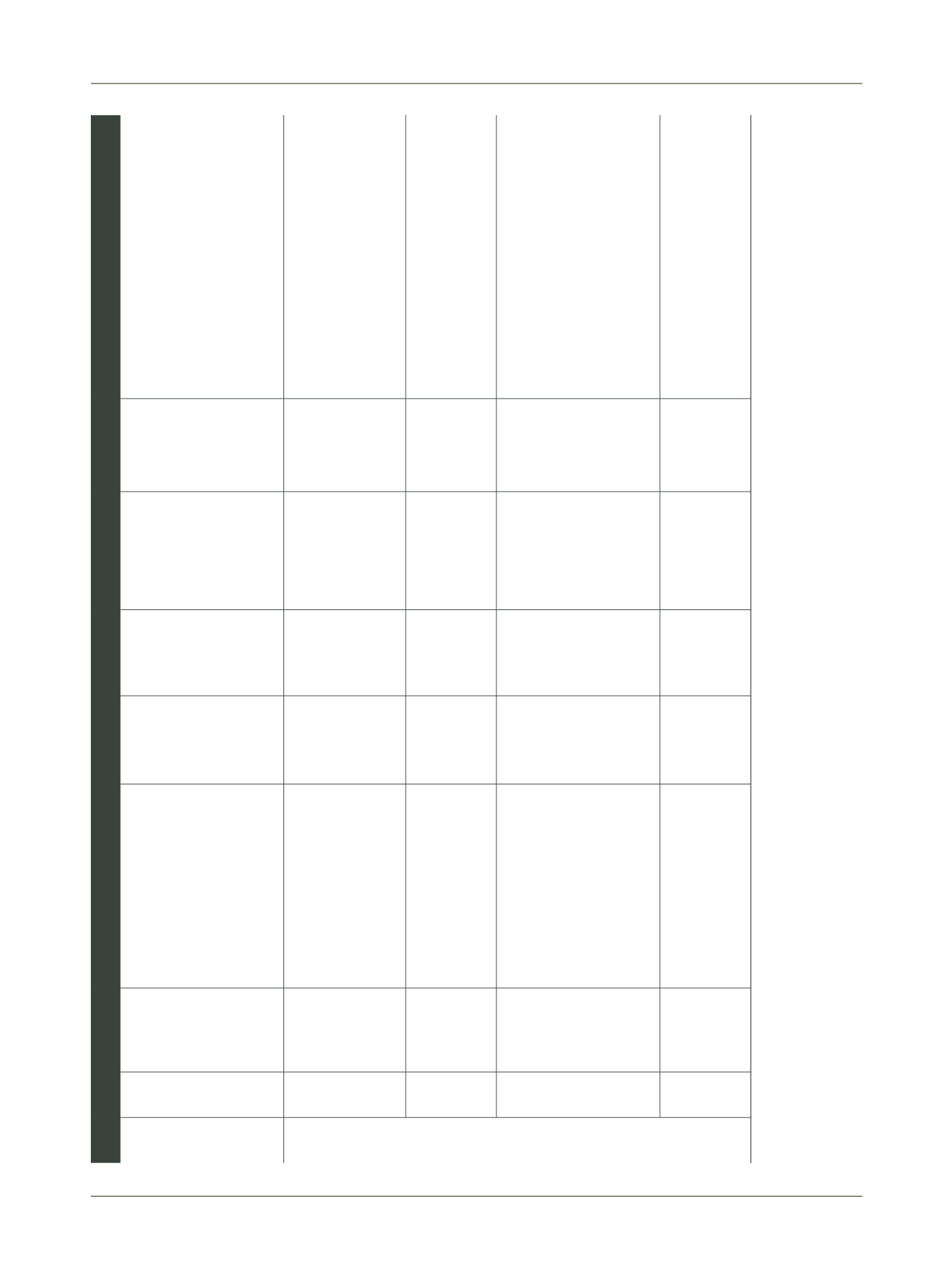

D
iagnostic
accuracy
of
respiratory
diseases
in
primary
health
units
R
ev
A
ssoc
M
ed
B
ras
2014; 60(6):599-612
603
Table 1
Synopsis of the articles relating to acute respiratory tract infections (ARI), tuberculosis, asthma, COPD, and asthma and COPD in conjunction (continuation)
ARI Upper and lower tract
12
Briel et al.,
2008,
Switzerland
To compare the usual approach to
approach guided by PCT(5)
PCT
5
Randomized
trial
458; 33-63; 48
53
The 458 patients with acute respiratory infections
that, in their physicians’ opinion, needed
antibiotics were randomized to either a group of
usual care or a group of care guided according to
the results of PCT.
5
When PCT was used by GPs as
a discriminating factor in relation to clinical
assessment, those who used it received 72% less
antibiotic prescriptions than the other group
Tuberculosis
16
Cirit et al.,
2003, Turkey
Assessment of knowledge of GPs
and pulmonary specialists on
diagnosis and treatment of
tuberculosis
Analysis of a
questionnaire
completed by
professionals
Cross-
sectional
Does not apply
203
Significant difference on knowledge of the
diagnosis and treatment of tuberculosis among
specialists and generalists in primary care. The
main differences were in combination of drugs for
treatment, infection duration, and medical
management in cases of resistance
17
Al-Maniri et
al., 2008,
Oman
To evaluate suspicion of tuberculosis
by GPs in units of public and private
health
Questionnaire
related to five
clinical cases
Cross-
sectional
Does not apply
257
The general index of suspicion was only 37.7% of
GPs and public hospitals had a better degree of
suspicion compared to private units (27.3
versus
53.4%, p = 0.001)
18
Hong et
al.,1995,
South Korea
Knowledge, attitudes and practices
of GPs
Responses to
questionnaire
Cross-
sectional
Does not apply
923
More than 50% do not consider the sputum
examination essential for diagnosis, and 75% to
monitor response to treatment. For initial
treatment of active tuberculosis, only 11%
prescribed in accordance with government
guidelines. More than 73% were using treatment
regimens that are not recommended and 16%
unacceptable regimes
19
Singla et al.,
1998, India
Knowledge, attitudes and practices
of doctors in the private system
Responses to
questionnaire
Cross-
sectional
Does not apply
204
In suspected cases of tuberculosis only 22 (12%) of
GPs requesting sputum AFB smear
6
for diagnosis.
Only 66 (18%) search contacts, and 39 (19.5%)
guide the patient to regular treatment
(continues)
















